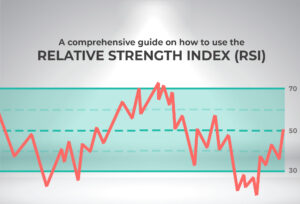The foreign exchange market, often referred to as the forex market, is a global marketplace where currencies are traded. The value of a currency relative to another is determined by a myriad of factors, including economic indicators, political stability, and geopolitical events. Among these factors, inflation and deflation play a crucial role in influencing currency values.
Understanding Inflation and Deflation
Inflation occurs when the general price level of goods and services rises over time, reducing the purchasing power of a currency. Conversely, deflation is a decline in the general price level, leading to an increase in purchasing power. Both inflation and deflation can have significant implications for currency values in the forex market.
The Impact of Inflation on Currency Values
High inflation rates typically lead to a depreciation of a country’s currency. When prices rise rapidly, consumers and businesses seek to exchange their domestic currency for foreign currencies with more stable purchasing power. This increased demand for foreign currencies can drive up their value relative to the domestic currency, causing it to depreciate.
Several factors contribute to the negative impact of high inflation on currency values:
- Reduced competitiveness: As domestic prices rise, exports become more expensive, making them less attractive to foreign buyers. This can lead to a decline in exports and a decrease in demand for the domestic currency.
- Capital flight: Investors may seek to move their assets to countries with more stable currencies to protect their wealth from inflation. This outflow of capital can weaken the domestic currency.
- Higher interest rates: Central banks often raise interest rates to combat inflation. Higher interest rates can attract foreign investment, but they can also make the domestic currency more expensive, potentially leading to a depreciation.
However, it’s important to note that the relationship between inflation and currency values is not always straightforward. Moderate levels of inflation can actually be beneficial for economic growth, as it encourages investment and consumption. Moreover, the impact of inflation on currency values can be influenced by other factors, such as interest rate differentials, economic growth, and political stability.
The Impact of Deflation on Currency Values
Deflation, while less common than inflation, can also have significant implications for currency values. When prices are falling, consumers and businesses may delay purchases in anticipation of lower prices in the future. This can lead to a decrease in demand for goods and services, which can, in turn, lead to a decline in economic activity and a decrease in demand for the domestic currency.
Additionally, deflation can create a debt burden, as the real value of debts increases when prices are falling. This can lead to financial distress for businesses and households, which can further weaken the domestic currency.
However, deflation can also have some positive effects. For example, deflation can increase the purchasing power of consumers, leading to increased demand for goods and services. It can also reduce the cost of borrowing, which can stimulate investment and economic growth.
The Role of Central Banks
Central banks play a crucial role in managing inflation and deflation. By adjusting monetary policy, central banks can influence interest rates, which in turn can affect currency values. For example, raising interest rates can attract foreign capital, strengthening the domestic currency. Conversely, lowering interest rates can discourage foreign investment, weakening the domestic currency.
Central banks must carefully balance the risks of inflation and deflation. Too much inflation can erode purchasing power and destabilize the economy, while too much deflation can lead to economic stagnation and financial distress.
Inflation and deflation are two key factors that influence currency values in the forex market. High inflation rates typically lead to a depreciation of a country’s currency, while deflation can have both positive and negative effects. Central banks play a crucial role in managing inflation and deflation, and their policies can significantly impact currency values. Understanding the relationship between inflation, deflation, and currency values is essential for anyone involved in the forex market.
Let’s Have Forex Trade Copying Service From Expert Traders!
Fx Pips Guru is a forex trade copying service provider company from expert traders. Let’s do Live Chat with our experts.




